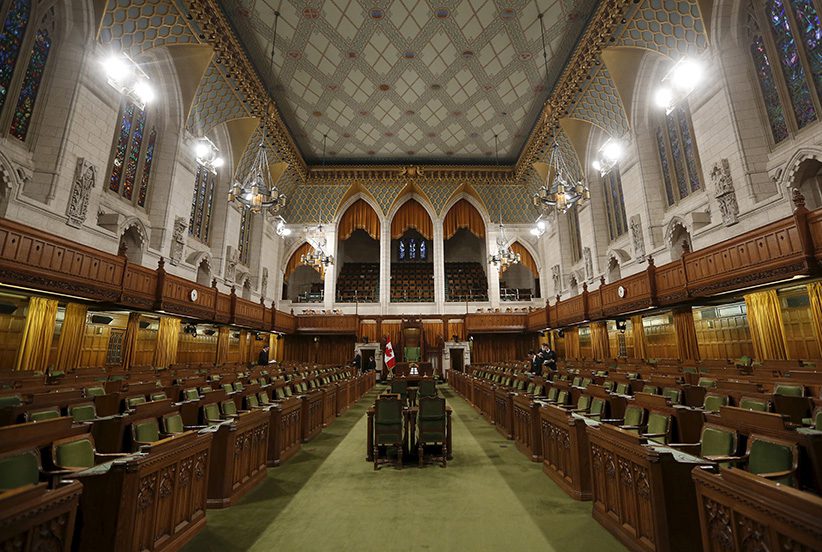Try searching "Steve Bannon" on CBC's website. (I assume Bannon needs no introduction for anyone not living under a rock the past year.) Now, try searching "Gerald Butts"— Prime Minister Justin Trudeau's best friend and principal secretary for the fair amount of casual readers who've never heard of him. Basically, these men, until Bannon was the latest casualty in Trump's real-life Apprentice, held the same role as top adviser to each of his respective national leader. However, when you look at the CBC search results of these two names there is a bizarre discrepancy. There are a pathetic 63 results for "Gerald Butts" and a whopping 763 results for "Steve Bannon".
Here is where the reader might start thinking, "But Graeme, Steve Bannon is a racist and alt-right bastard who held the POTUS's ear. Of course CBC would cover him way more than Prime Minister Justin Trudeau's safe, uncontroversial adviser."
Well, to that lazy Liberal line of thinking I have several rebuttals.
First, many of the slanderous aspersions cast on Mr. Bannon are just that, slanderous aspersions. It's comical how the CBC is all too eager to push the narrative of a mass uprising of a largely non-existent white supremacists and KKK, meanwhile hiding the fascistic tendencies of Antifa, instead glorifying the lawless anarchists.
Second, Bannon only joined Trump's campaign midway through 2016, Butts has been highly influential in Canadian politics since the early 2000s when he helped former Ontario Premier Dalton McGuinty rise to power and then proceeded to be the premier's top aide and "policy guru" responsible for implementing the economically destructive green energy policies which Ontarians are only now fully comprehending to their increasing chagrin. So Butts has been pulling the strings in Canadian politics for two decades, yet the Canadian Broadcasting Corporation has only 63 stories on this powerful Canadian figure, many of which only mention his name in passing, yet an adviser in American politics gets hundreds of CBC stories devoted to him. Furthermore, two of those few critical stories out of the batch mentioning Butts were only published courtesy of moi, a freelance contributor.
Third, Butts, although the media would have you think otherwise with their neglectful/blatant omissions, is controversial. From his anti-oil sands rhetoric to his destructive provincial energy policies to his grafting of taxpayers for $127,000 in moving expenses, Butts has been able to weasel out of any real accountability and close scrutiny. The egregious bilking of taxpayers did get some coverage, but after Butts and Katie Telford apologized and offered to pay back some of the money they now suddenly felt a conflicted conscience over taking, the matter was promptly dropped by the press. No follow-up scrutiny like the feeding frenzy over Mike Duffy's housing allowance. And then there was the report from The Rebel on how Butts kept collecting hundreds of thousands from the World Wildlife Fund for two fiscal years after leaving the environmental charity to work for Trudeau. Of course this intriguing story was not picked up by the mainstream media. And now there is the story about Butts's friend getting paid double that of other diplomats that CBC et al. largely only do stories excusing this gross case of nepotism. Another reason Butts is controversial and deserves closer scrutiny from the media is his close friendship with the PM and how many observers have suggested he's the brains behind many of the PM's decisions. Yet the media let him pull the strings from the shadows and his tweets.
Fourth, for how much the Canadian media, and CBC in particular, finds Bannon repulsive, it was curious their lack of reaction to the revelation from The New Yorker that the two had become good friends, and that Bannon saw them as two peas in a pod, albeit on opposite sides. The Toronto Star and some other publications published some stories on it, but all Butts was given was a slight rap on the wrists, and what was most bizarre was CBC's practical silence. (It's also interesting how Butts, who's actively on Twitter daily grooming journalists, can never be found once he's wanted for comment.) The Current had a 19-minute segment discussing Bannon two days after The New Yorker story dropped, yet not a peep from the host to mention Butts's close connection to the notorious man. There was not one story I could find on the matter on CBC's site.
So how does Butts, and the Liberals at large, dodge the wrath of the press? One likely reason is the many close relationships Butts (and other Liberals) has fostered with journalists, as well as grooming journalists for higher paying jobs within the government. Another obvious reason is the Liberals, although many policies are totally ineffectual, fight for the same socialist causes that resonate with the majority of journalists holding liberal arts degrees that promote the same regressive economic theories in government interventionism. The result is blatant or willful negligence in covering the real controversies happening domestically, instead regurgitating the same talking points as their liberal press cousins in America in condemning what they see as the evil white men in power down there. It's time a little more attention was placed on our own affairs.
Written by Graeme C. Gordon










